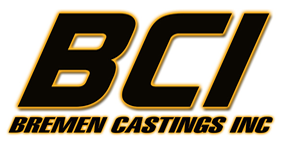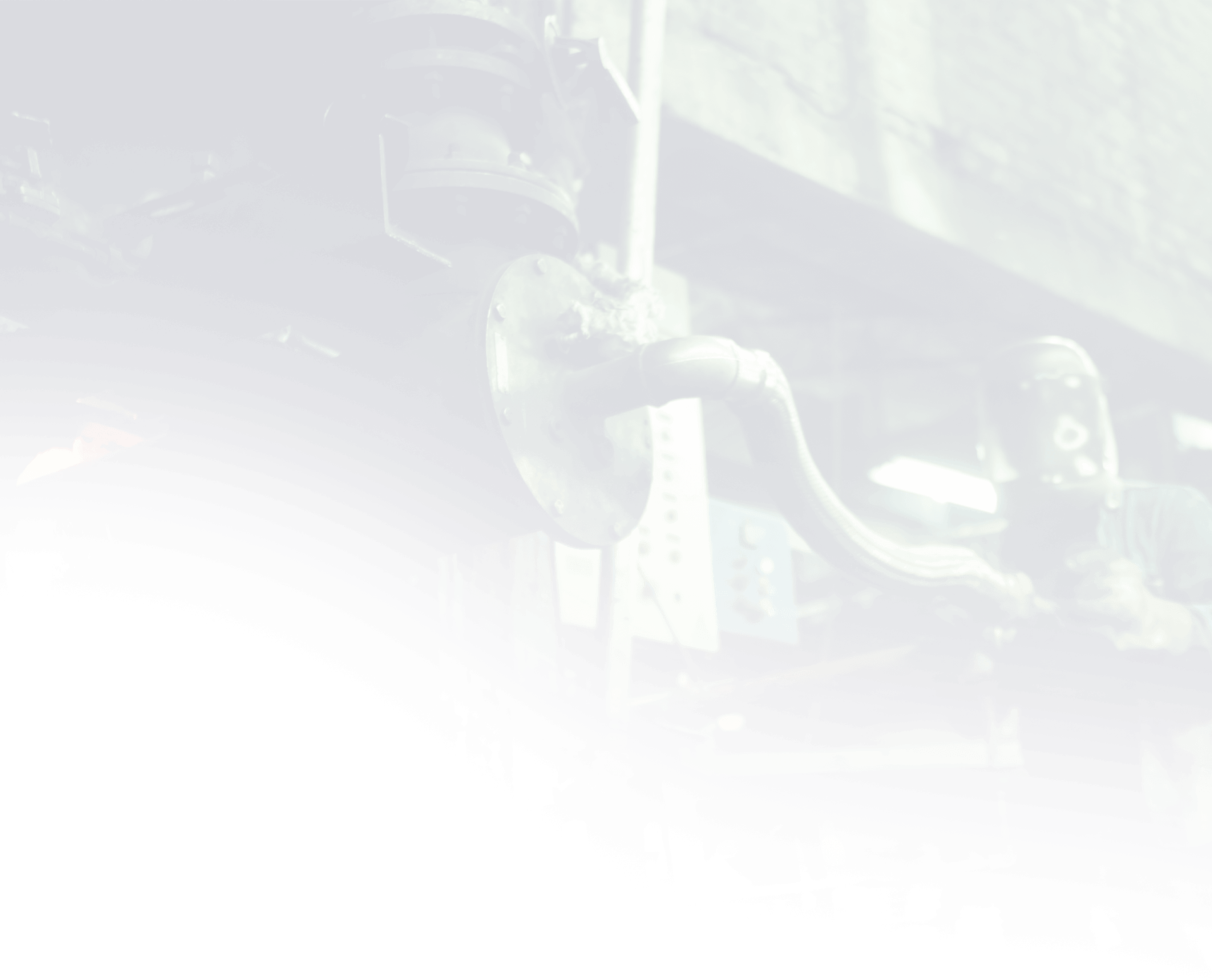 |
BREMEN CASTINGS, INC. PRESIDENT, JB BROWN, QUOTED IN THE WALL STREET JOURNAL, SPEAKING ABOUT PRIVATE EQUITY INVESTORS WITHIN THE METALCASTING INDUSTRY NEW INVESTORS in STAID FOUNDRIES HOPE TO RIDE REBOUND By Kris Maher |
In December, a private-equity firm snapped up a small foundry in St. Cloud, Minn., where 280 workers melt scrap metal and pour it into molds much as they have done for decades.
In the same deal, Wayzata Investment Partners LLC acquired a half-dozen other foundries in towns like New Castle, Ind., and Iron Mountain, Mich. Like the St. Cloud plant, they were owned by 80-year-old Grede Foundries, which had tumbled into bankruptcy. Wayzata combined the foundries with eight others to create one of the nation's biggest operations.
While American businesses generally remain cautious in the recession's wake, the acquisitions signal that investors are regaining their appetite for risk. By buying into one of the oldest and most basic of industries, Wayzata and other private-equity firms are betting on the recovery of the battered manufacturing sector. When that happens, they will control valuable capacity.
Wayzata, which Grede said invested $70 million in it and assumed some liabilities, declined to comment for this article. But Doug Grimm, who was tapped to run the combined foundries, said, "We're forecasting growth across the board."
Foundries are the linchpin of manufacturing. According to a spokesman for their national trade group, nearly 90% of manmade products in the U.S. contain a part made in one of the country's roughly 2,100 foundries or one overseas.
The steps in making these often-nondescript parts hasn't changed much in centuries, though they have been automated in some larger plants. In cavernous buildings filled with the acrid smells of heat and chemicals, big furnaces melt tons of scrap metal, which are then poured into molds, using red-hot ladles. After the parts are removed from the molds, workers in protective gear use torches or grinders to smooth any rough edges.
The parts can weigh anywhere from a few pounds to a few tons. In addition to scores of other products, foundries supply cities with manhole covers and fire hydrants, auto makers with engine blocks and energy companies with windmill parts. Those markets were hit hard by the recession.
Since their parts are relatively heavy and costly to ship, foundries tend to serve local customers. Their heavy capital needs and long lead times-as much as 18 months can elapse between the initial design of parts and molds and full production-make it hard for them to react quickly when demand slackens, as it did during the recession, raising their operating costs. As a result, foundries have been undercutting one another to grab market share.
Industry-wide sales last year fell 22% from a year earlier to $25 billion, and capacity shrank 1.5%, according to the American Foundry Society, as hundreds of foundries disappeared or filed for bankruptcy-court protection, amid a manufacturing decline led by the auto and construction sectors. In February, one of the industry's heavyweights, Neenah Enterprises Inc., with nine foundries, 15 sales and distribution centers and 1,650 workers, filed for bankruptcy.
Now, private-equity firms, whose specialty is investing in distressed companies, think the industry is ripe for a comeback, and want to get in on the ground floor. "There have been lots of bankruptcies in the sector due to the recession. This has given distressed investors an opportunity to pick up assets inexpensively and consolidate to reduce costs and capacity," said Dan Pryor, a managing director at private-equity firm Carlyle Group. Private-equity groups including Priztker Group and Guard Hill Holdings invested in foundries during the downturn.
"A foundry is early in the supply chain for many products. It's not going to go away," said Cliff Waldman, an economist with Manufacturers Alliance/MAPI, an industry and economics research group in Arlington, Va. He also said that an expected recovery in commodity prices, including those for metals, could benefit foundries by giving them leeway to push up their prices.
For private-equity firms, however, the potential for cost cutting and further reductions in capacity is the industry's chief attraction. It is tough to measure their foundry investments, because private-equity firms commonly take control of companies by acquiring their debt at a discount to face value. But Camillo Santomero, managing partner of Guard Hill Holdings, predicts more such deals.
"We expect further consolidation in the industry, and that there will be further private-equity investing as the shakeout continues," Mr. Santomero said. His firm has focused on higher-end technology-driven foundries, as more lower-end business has been driven overseas, where production costs in places like India and China can be low enough to compensate for high freight bills.
Private-equity investment is considered a double-edged sword by some of the industry's customers. Though the firms have injected much-needed funds, saving foundries, jobs and local tax revenues, many customers are concerned that they will close too many foundries, cutting capacity so much that it creates bottlenecks and leads to higher prices.
Eric Schwarz, chief purchasing officer for Dana Holding Corp., a Maumee, Ohio, maker of vehicle axles and drive shafts, said he expects higher prices for parts made by foundries, but also added that some increase is warranted. "I believe there will be some pricing adjustment upward, where they get a decent return on capital. It's necessary. Otherwise it's not sustainable."
However, Mr. Schwarz said, if there is too much consolidation it could be a problem. "The bad thing is that if it continues to consolidate," it gets "to where you get an oligopoly," he said. "You want them to keep each other sharp."
Some foundries and their customers harbor anxiety about private-equity's long-term commitment. "It's a bit scary; they're not foundry people," said J.B. Brown, president of Bremen Castings Inc., a Bremen, Ind., foundry that makes a variety of valves. "They're going to do what's best to make their investors money."
Still, with the industry's tight margins and competition from foundries in India and China, Mr. Brown said he would be happy if foundries owned by private-equity firms began to raise prices. "I'd be right on their coattails," he said.
Mr. Grimm, who runs Wayzata's foundry business, discounts any commitment concerns, saying private-equity firms have been investors in the sector for several years, and in the wake of the credit crisis and other setbacks are hewing to long-term strategies, rather than seeking short-term gains. He called the practice of trying to turn around companies quickly "old school private equity."
He also said there is enough competition to keep prices in check. Mr. Grimm said his firm's newly merged foundry giant's pricing power will be constrained by rivals. It has a 15% market share in automotive and trucks markets and 4% market share in the industrial sector. "There's still quite a bit of competition out there," he added.
Mr. Grimm hopes to make his operation profitable by cutting labor and other costs and closing less-competitive foundries. Such moves could put additional pressure on his competitors.
At Beaver Valley Alloy, about 30 miles north of Pittsburgh, workers cast parts like bearing blocks, drums and plates, weighing from 10 pounds to 5,000 pounds, for steel mills, power plants, coal-mining and rail companies. The foundry almost went under after its biggest customer, LTV Steel, filed for Chapter 11 protection in 2000. But Beaver Valley survived by diversifying beyond steel.
Now, the third and fourth generations of its founding Forster family are watching the wave of private-equity investment with apprehension. "If investors in our general area would acquire a foundry and put a lot of technology in, we'd have to respond," said Vice President Tom Forster.
Write to Kris Maher at kris.maher@wsj.com
Copyright 2008 Dow Jones & Company, Inc. All Rights Reserved
This copy is for your personal, non-commercial use only. Distribution and use of this material are governed by our
Subscriber Agreement and by copyright law. For non-personal use or to order multiple copies, please contact Dow Jones
Reprints at 1-800-843-0008 or visit www.djreprints.com.

